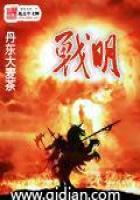To animate the newly-imported municipal institutions, which had no root in the traditions and habits of the people, was a task of equal difficulty. In the West these institutions had been slowly devised in the course of centuries to meet real, keenly-felt, practical wants. In Russia they were adopted for the purpose of creating those wants which were not yet felt. Let the reader imagine our Board of Trade supplying the masters of fishing-smacks with accurate charts, learned treatises on navigation, and detailed instructions for the proper ventilation of ships' cabins, and he will have some idea of the effect which Peter's legislation had upon the towns. The office-bearers, elected against their will, were hopelessly bewildered by the complicated procedure, and were incapable of understanding the numerous ukazes which prescribed to them their multifarious duties and threatened the most merciless punishments for sins of omission and commission. Soon, however, it was discovered that the threats were not nearly so dreadful as they seemed; and accordingly those municipal authorities who were to protect and enlighten the burghers, "forgot the fear of God and the Tsar," and extorted so unblushingly that it was found necessary to place them under the control of Government officials.
The chief practical result of the efforts made by Peter and Catherine to create a bourgeoisie was that the inhabitants of the towns were more systematically arranged in categories for the purpose of taxation, and that the taxes were increased. All those parts of the new administration which had no direct relation to the fiscal interests of the Government had very little vitality in them. The whole system had been arbitrarily imposed on the people, and had as motive only the Imperial will. Had that motive power been withdrawn and the burghers left to regulate their own municipal affairs, the system would immediately have collapsed.
Rathhaus, burgomasters, guilds, aldermen, and all the other lifeless shadows which had been called into existence by Imperial ukaz would instantly have vanished into space. In this fact we have one of the characteristic traits of Russian historical development compared with that of Western Europe. In the West monarchy had to struggle with municipal institutions to prevent them from becoming too powerful; in Russia, it had to struggle with them to prevent them from committing suicide or dying of inanition.
According to Catherine's legislation, which remained in force until 1870, and still exists in some of its main features, the towns were divided into three categories: (1) Government towns (gubernskiye goroda)--that is to say, the chief towns of provinces, or governments (gubernii)--in which are concentrated the various organs of provincial administration; (2) district towns (uyezdniye goroda), in which resides the administration of the districts (uyezdi) into which the provinces are divided; and (3)
supernumerary towns (zashtatniye goroda), which have no particular significance in the territorial administration.
In all these the municipal organisation is the same. Leaving out of consideration those persons who happen to reside in the towns, but in reality belong to the Noblesse, the clergy, or the lower ranks of officials, we may say that the town population is composed of three groups: the merchants (kuptsi), the burghers in the narrower sense of the term (meshtchanye), and the artisans (tsekhoviye). These categories are not hereditary castes, like the nobles, the clergy, and the peasantry. A noble may become a merchant, or a man may be one year a burgher, the next year an artisan, and the third year a merchant, if he changes his occupation and pays the necessary dues. But the categories form, for the time being, distinct corporations, each possessing a peculiar organisation and peculiar privileges and obligations.
Of these three groups the first in the scale of dignity is that of the merchants. It is chiefly recruited from the burghers and the peasantry. Any one who wishes to engage in commerce inscribes himself in one of the three guilds, according to the amount of his capital and the nature of the operations in which he wishes to embark, and as soon as he has paid the required dues he becomes officially a merchant. As soon as he ceases to pay these dues he ceases to be a merchant in the legal sense of the term, and returns to the class to which he formerly belonged. There are some families whose members have belonged to the merchant class for several generations, and the law speaks about a certain "velvet-
book" (barkhatnaya kniga) in which their names should be inscribed, but in reality they do not form a distinct category, and they descend at once from their privileged position as soon as they cease to pay the annual guild dues.
The artisans form the connecting link between the town population and the peasantry, for peasants often enrol themselves in the trades-corporations, or tsekhi, without severing their connection with the rural Communes to which they belong. Each trade or handicraft constitutes a tsekh, at the head of which stands an elder and two assistants, elected by the members; and all the tsekhi together form a corporation under an elected head (remeslenny golova) assisted by a council composed of the elders of the various tsekhi. It is the duty of this council and its president to regulate all matters connected with the tsekhi, and to see that the multifarious regulations regarding masters, journeymen, and apprentices are duly observed.
The nondescript class, composed of those who are inscribed as permanent inhabitants of the towns, but who do not belong to any guild or tsekh, constitutes what is called the burghers in the narrower sense of the term. Like the other two categories, they form a separate corporation, with an elder and an administrative bureau.















